Your battery bank is a very important (and potentially expensive) component of your RV solar system, so you should do plenty of research on the best RV batteries before you buy.
Dry camping in your RV doesn’t mean you have to lose the comforts of home; but if you need your morning espresso or want to watch the game in the evening, you will be relying on your RV batteries.
Solar panels can power you through sunny days, but you need somewhere to store this solar power to use when the sun isn’t out.
We use affiliate links and may receive a small commission on purchases at no extra cost to you.
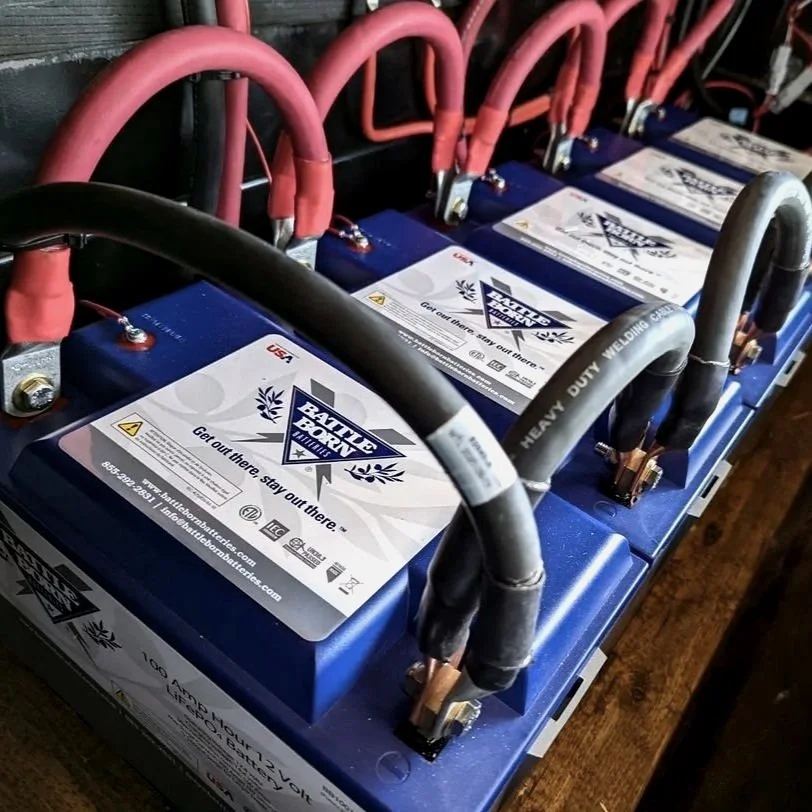
Types of RV Batteries
A quick search for RV batteries will lead you to believe that there are many different types to choose from.
In reality, there are 2 major categories: lithium and AGM.
-
“Lithium” includes LiFePO4 (or lithium iron phosphate) and lithium ion. Almost all lithium RV batteries are LiFePO4, because this chemistry is very safe and LiFePO4 batteries have a very long life.
Lithium ion batteries, on the other hand, are typically used in cell phones and electric cars because they are lighter and charge faster.
-
“AGM” includes batteries labeled “lead acid”, “flooded”, and “gel”. AGM batteries are now the most popular lead-acid RV batteries.
While AGM batteries are slightly more expensive than the other two, flooded batteries require consistent maintenance and gel batteries have low discharge/recharge rates. If you are going with lead-acid batteries, choose AGM.
Pro-tip: Terms like “12 volt”, “deep cycle”, and “marine” are used for both lithium and lead-acid batteries, so they do not help you determine which type of battery you are looking at.
Things to Consider
Lithium vs Lead Acid RV Batteries
Cost:
The first major difference you will notice between lithium and lead-acid RV batteries is the cost.
Quality lithium RV batteries cost between $700 and $1,000 each for a 100Ah battery. A quality 100Ah lead-acid battery costs between $200-300.
The up-front cost alone leads most RVers to lead-acid batteries, but continue reading about how lithium RV batteries can save you time and money in the long run.
Usable Capacity:
Lead-acid batteries cannot be discharged below 50% without permanent damage. If you discharge a lead-acid below 50% even 2 or 3 times, the battery will become useless.
This limitation is why I put the usable capacity in parentheses for the lead-acid batteries on the list.
Lithium batteries can be discharged to 0% without any permanent damage. This means that one 100Ah lithium battery has twice the usable capacity of a 100Ah lead-acid battery.
Weight:
Not only do you need twice the number of lead-acid batteries, but each lead-acid battery also weighs 2-3X as much as each lithium battery. Every ounce matters when RVing, so being able to shave off weight was a big reason why we went with lithium.
Comparing the Renogy batteries from the list:
300Ah Lithium Batteries = 78 lbs
300Ah (usable) Lead-Acid Batteries = 396 lbs
Lifespan:
The most significant benefit of lithium RV batteries, in the long run, is their lifespan. As long as you use and store your batteries properly, lithium batteries can last 10+ years.
Even if you don’t over-discharge your lead-acid RV batteries, you will probably only get 2-3 years out of them. If you plan on using your batteries for 5+ years, lithium will be the cheaper option (despite the scary up-front cost).
Maintenance:
AGM batteries are fully sealed so you don’t have to worry about any gas or acid leaks. If you are buying lead-acid batteries, stick with AGM. They are worth the extra $10-20.
Regardless of which batteries you choose, make sure you store them properly.
When they are not in use, store them inside in a dry location within a reasonable temperature range (~40-80 F). Lead-acid batteries should be topped off every 6 months.
Best RV BATTERIES
1) Battle Born LiFePO4 RV Battery
Editor’s Top Choice
REVIEW: Battle Born is the market standard for lithium RV batteries. They continue to make great batteries, which their price reflects.
If you are looking for the best of the best RV batteries, go with Battle Born. Battle Born batteries come with a built-in battery management system which monitors charge levels and temperature to protect your batteries and keep you safe. Battle Born stands behind their batteries with a 10 year warranty and lifetime customer service.
I love my Battle Born batteries, and I would recommend them to anyone who can squeeze them into his or her RV solar budget. Battle Born recently launched a 270 Ah battery if you are building a large battery bank and you want the convenience (and small discount) when having 1 large battery.
2) Weize 100Ah LiFePO4 RV Battery
REVIEW: If you are looking for something with very similar specs to Battle Born but easier on your pocketbook, Weize offers a quality product at less than half the price. Weize also recently launched a 300 Ah option (triple the capacity) for around the same price as one 100 Ah Battle Born battery.
Weize batteries go on sale more frequently than Battle Born, so you might be able to find them for under $300 each. At that price, these batteries are a fantastic deal. You still get the major features that Battle Born provides like the battery management system, minimal maintenance, and long life.
Unlike the other batteries on this list, I have not owned or tested a Weize lithium battery. I choose Weize as the best budget lithium RV battery strictly based on Amazon reviews (4.5 stars with over 1,500 reviews). I don’t normally recommend products without testing them first, but this Weize battery appears to be better than the budget-friendly lithium RV batteries that I have experienced.
3) Renogy AGM RV Battery
Editor’s Choice: Best AGM battery
REVIEW: If you end up going the lead-acid route, I recommend the Renogy AGM RV battery. For under $200 per battery, you keep your RV up and running with confidence.
Renogy is one of the largest brands in RV solar and batteries, and they continue to put out solid products including my favorite AGM battery. Renogy tests its batteries in extreme conditions and has rated this battery down to 5 degrees F. If you are going to be camping in cold weather frequently, this battery is a good option for you.
The main challenge with Renogy is that their customer service leaves something to be desired. While this battery comes with a 2 year warranty, you will probably have some headaches trying to use the warranty if anything goes wrong.
4) BLUETTI EB70S Portable Power Station (Solar Generator)
REVIEW: If you are overwhelmed by the cost or number of components of a full RV solar set-up, this all-in-one power station includes everything you need for off-grid electrification.
While the battery doesn’t have the same capacity as the others on this list, the BLUETTI EB70S portable power station is perfect for a weekend warrior.
You get a lithium-ion battery, 200W solar panel, 800W inverter, and an MPPT charge controller in one portable package.
Want to work from the beach? Need to keep your devices charged on a long camping trip?
The BLUETTI EB70S is perfect for someone wanting flexibility outside of their RV. Even though we have a full solar setup in the RV, we love the freedom that our portable power station provides us.
New to RV solar? Read our Solar Series:
I hope this information helps you with you RV battery decision. If you have any specific questions, reach out to us in the comments below.


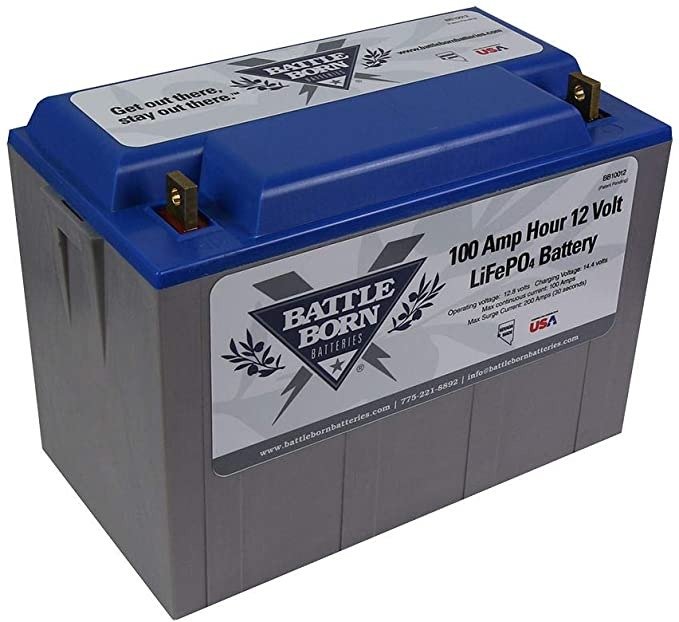

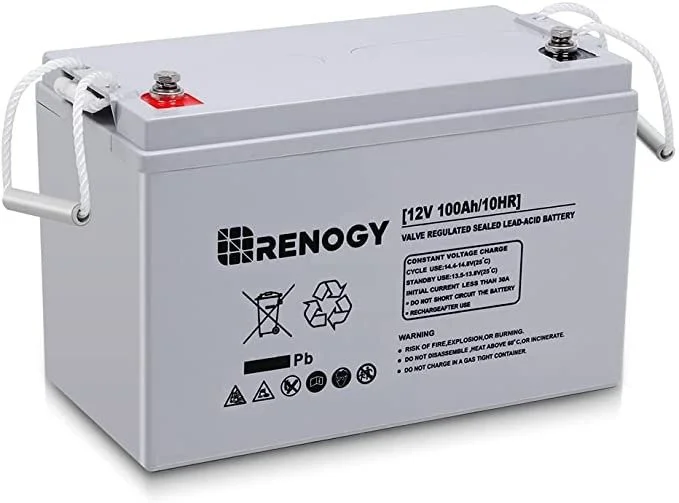

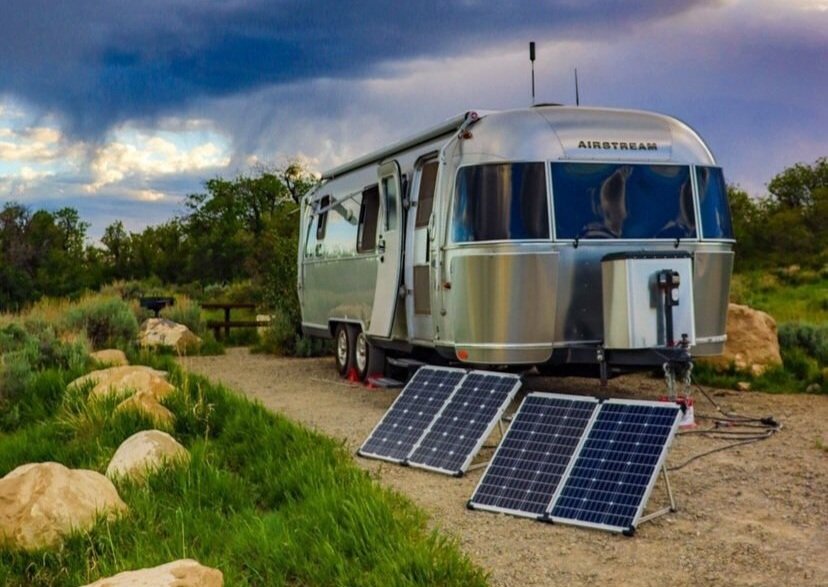


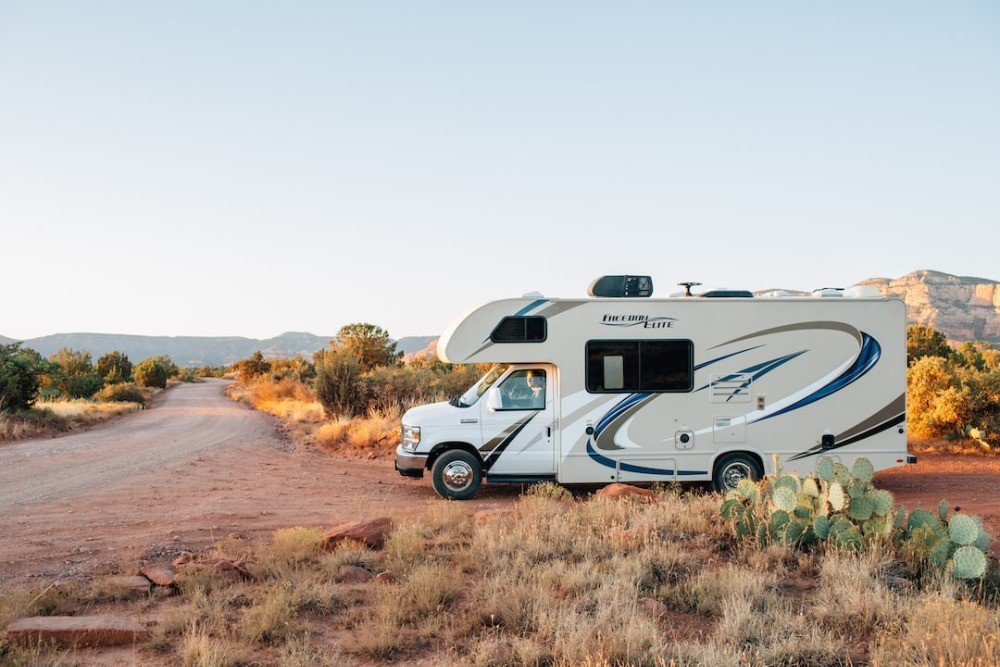
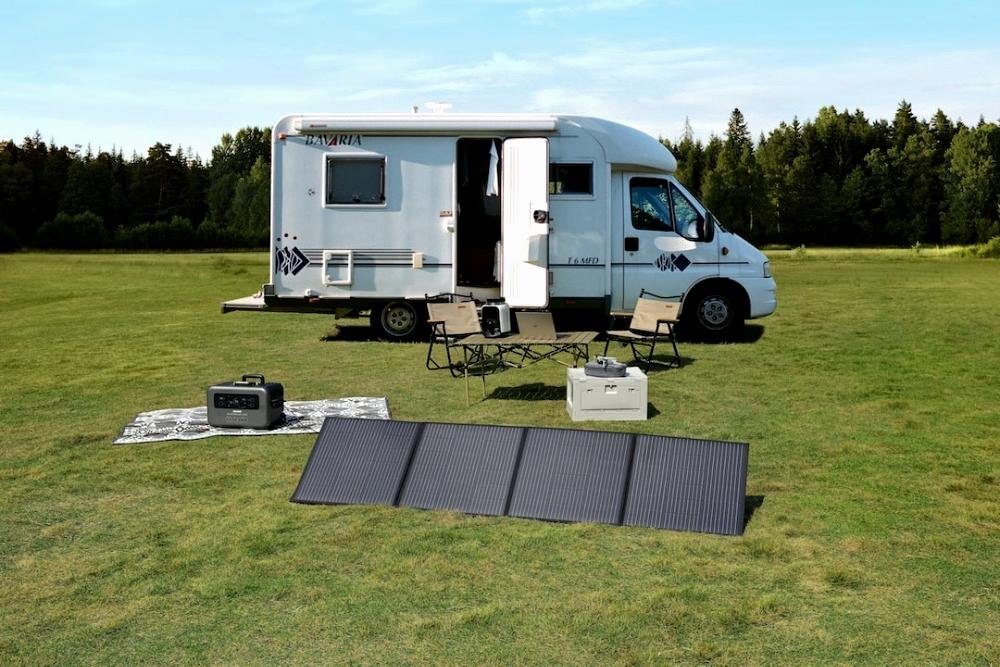


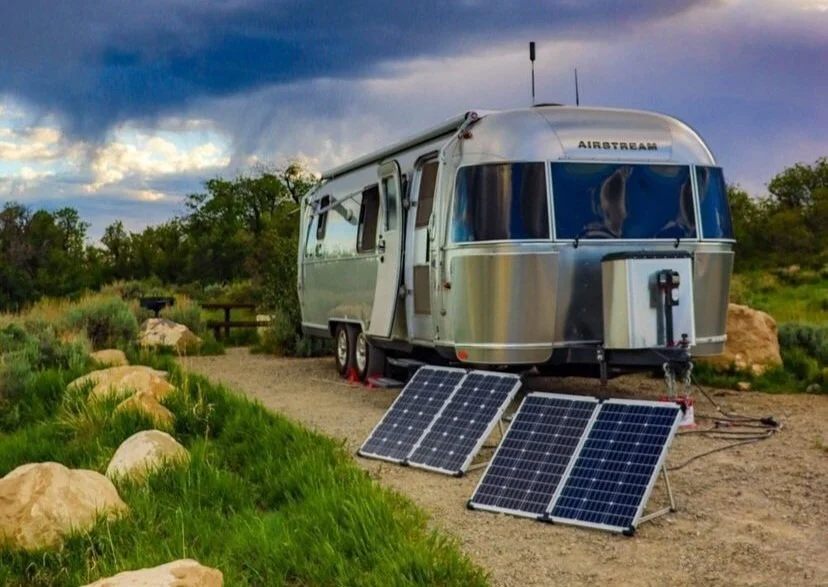


I’ve had a lot of bad battery experiences throughout my life before I saw this article. Thanks for reviewing these RV batteries. Great article.
390 Ah/ 6v available hai kya